Current board members are listed below.
To view the job description for the ARCUS Board of Directors, click here.
Victoria Herrmann
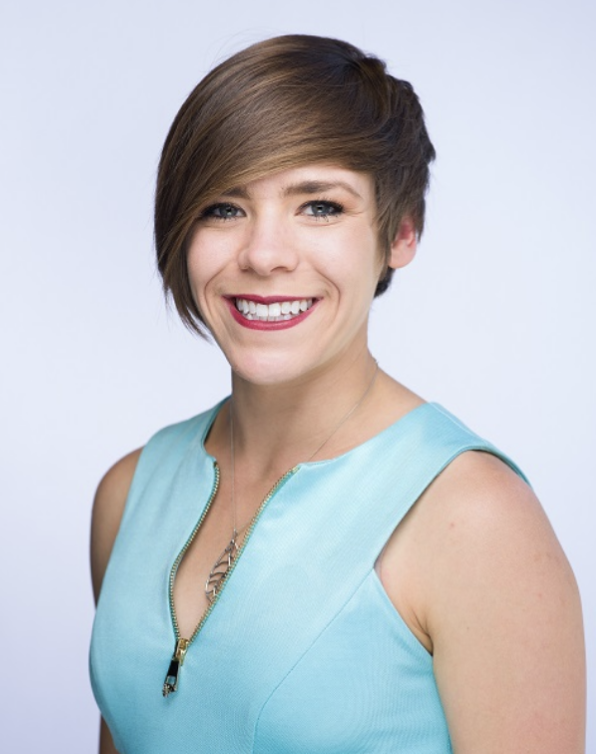
The Arctic Institute
Washington, District of Columbia
Victoria Herrmann is a storyteller and geographer working with communities around the world on climate change adaptation. As a Senior Fellow at The Arctic Institute and Assistant Research Professor at Georgetown University, she has spent the past decade leading research initiatives and directing capacity building programs to support communities on the front lines of climate change to safeguard their cultural heritage. At Georgetown University, she serves as the Principal Investigator of a National Science Foundation-funded Arctic Migration Research Coordination Network, a 600-person initiative with a mission to integrate discipline-isolated research on changing Arctic migration patterns and advance policy-focused outcomes. Victoria is also the Director of Preserving Legacies: A Future for Our Past, a major global program funded by the National Geographic Society that envisions a world where we celebrate our diverse cultural heritage and safeguard every site against climate impacts by empowering communities with the scientific knowledge and technical training to achieve appropriate place and people-based climate adaptation plans. Victoria is also a AAAS IF/THEN Ambassador, program serving as high-profile STEM role models for middle school girls.
A recognized expert in Arctic policy, Victoria has testified before the US House and Senate, served as the Alaska Review Editor for the 4th National Climate Assessment, contributes to major media outlets on climate change, and was named as one of the ‘World’s 100 Most Influential People in Climate Policy’ by Apolitical. She has previously served as the President and Managing Director of The Arctic Institute from 2016 to 2021, a White House Fellow, a Fulbright awardee to Canada, a Carnegie Endowment Junior Fellow, and a Gates Scholar at the University of Cambridge, where she received her PhD in Geography.
A recognized expert in Arctic policy, Victoria has testified before the US House and Senate, served as the Alaska Review Editor for the 4th National Climate Assessment, contributes to major media outlets on climate change, and was named as one of the ‘World’s 100 Most Influential People in Climate Policy’ by Apolitical. She has previously served as the President and Managing Director of The Arctic Institute from 2016 to 2021, a White House Fellow, a Fulbright awardee to Canada, a Carnegie Endowment Junior Fellow, and a Gates Scholar at the University of Cambridge, where she received her PhD in Geography.
Peter Webley
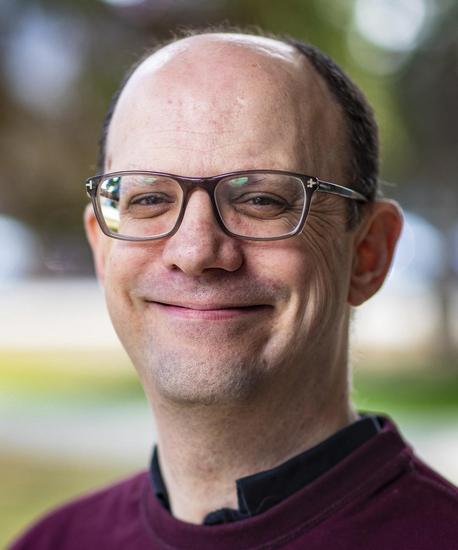
University of Alaska Fairbanks
Fairbanks, Alaska
I have a passion for business development and technology transfer from an academic environment into the private sector. I am a Research Professor of Remote Sensing as well as the Associate Director of Research at the Alaska Center for Unmanned Aircraft Systems Integration (ACUASI), Geophysical Institute, UAF. As well as Deputy Director of the UAF technology transfer office, Office of Intellectual Property and Commercialization (OIPC), I am a Program Manager at UAF’s Center for Innovation, Commercialization, and Entrepreneurship (Center-ICE) and lead the instruction of the NSF funded I-Corps site program as well as managing the summer-based Students to Starts program.
I was the Vice-President of UAF’s first start-up, V-ADAPT, Inc., formed in 2013 and have successfully licensed intellectual property, been awarded small business innovation research projects and a US patent as well as been inducted into the State of Alaska Innovators Hall of Fame 2016 – 2017 class.
I was the Vice-President of UAF’s first start-up, V-ADAPT, Inc., formed in 2013 and have successfully licensed intellectual property, been awarded small business innovation research projects and a US patent as well as been inducted into the State of Alaska Innovators Hall of Fame 2016 – 2017 class.
Helena Buurman
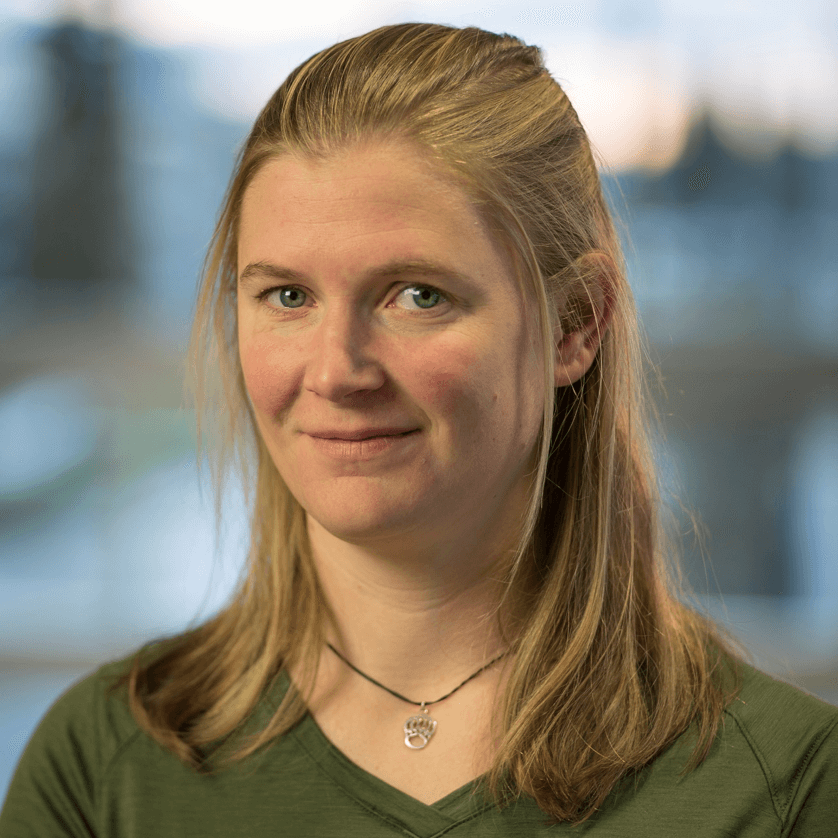
University of Alaska Fairbanks
Fairbanks, Alaska
Dr. Helena Buurman is a Research Development Officer at the University of Alaska Fairbanks, where she supports researchers in bringing new ideas to life. She is actively engaged in academic, military, and community-based research efforts in Alaska.
Originally from Scotland, Dr. Buurman moved to Alaska to pursue graduate studies in volcano seismology and volcano monitoring. Her passions for earth science, communication, and the outdoors have guided her career in natural hazards research, operations, and community engagement across the state of Alaska.
Originally from Scotland, Dr. Buurman moved to Alaska to pursue graduate studies in volcano seismology and volcano monitoring. Her passions for earth science, communication, and the outdoors have guided her career in natural hazards research, operations, and community engagement across the state of Alaska.
Howard Epstein
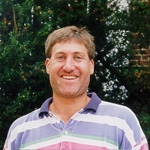
University of Virginia
Charlottesville, Virginia
Howard Epstein is a Professor in the Department of Environmental Sciences at the University of Virginia, specializing in the ecology of arctic tundra, and dry grasslands and shrublands. His research focus is on vegetation dynamics, nutrient cycling, and plant-soil-atmosphere interactions. Current research projects in the Arctic involve 1) the greening of arctic tundra vegetation in response to recent warming, 2) changes in the seasonality of tundra vegetation processes in response to warming, and 3) patterns of arctic tundra vegetation and soils along latitudinal temperature gradients in the Arctic of North America and Russia.
Dr. Epstein received his B.A. degree in Computer Science from Cornell University in 1986. He received an M.S. degree in Rangeland Ecosystem Science from Colorado State University in 1995 and a Ph.D. in Ecology, also from Colorado State, in 1997. He conducted postdoctoral studies at the Institute of Arctic and Alpine Research at the University of Colorado. Dr. Epstein came to the faculty of the University of Virginia in 1998. As part of his arctic research, he has traveled north of the Arctic Circle nearly every summer since 1999 and has recently conducted several field expeditions in northwestern Siberia. He teaches courses in the Fundamentals of Ecology, Terrestrial Ecology, and Ecology of Grasslands and Tundra. He has published approximately 80 peer-reviewed journal articles and book chapters on arctic tundra and dryland ecology.
Dr. Epstein received his B.A. degree in Computer Science from Cornell University in 1986. He received an M.S. degree in Rangeland Ecosystem Science from Colorado State University in 1995 and a Ph.D. in Ecology, also from Colorado State, in 1997. He conducted postdoctoral studies at the Institute of Arctic and Alpine Research at the University of Colorado. Dr. Epstein came to the faculty of the University of Virginia in 1998. As part of his arctic research, he has traveled north of the Arctic Circle nearly every summer since 1999 and has recently conducted several field expeditions in northwestern Siberia. He teaches courses in the Fundamentals of Ecology, Terrestrial Ecology, and Ecology of Grasslands and Tundra. He has published approximately 80 peer-reviewed journal articles and book chapters on arctic tundra and dryland ecology.
Stacey Fritz
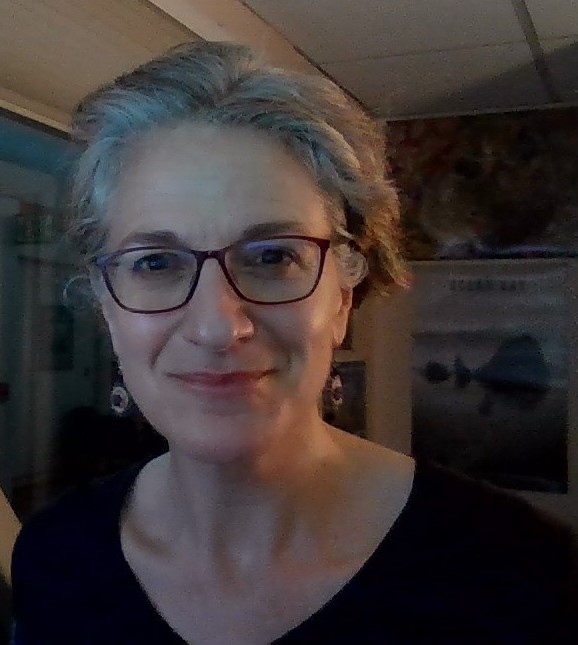
Alaska Adaptable Housing LLC
Fairbanks, Alaska
Stacey Fritz, PhD, is a Cultural Anthropologist with Alaska Adaptable Housing, LLC, based in Fairbanks, Alaska. She has 20 years of experience working with Indigenous communities in the Arctic. Her doctoral thesis at the University of Alaska Fairbanks traced the legacies of the DEW Line in the western Arctic, and she spent a decade working in public land management in the Arctic. Dr. Fritz works on housing insecurity issues, innovative building projects, remote Arctic logistic challenges, and specializes in tribal consultation, outreach to communities, sociocultural impact analysis, and mitigating impacts from resource development. In her current position, she works to advance sustainable housing for northern residents and regional economic development through distributed manufacturing of durable goods using local resources, Indigenous-led self-building initiatives, and innovative building science. She also contributes to guidance on energy justice, renewable energy projects in Alaska Native communities, and compensation for Alaska Native participants in research and government processes.
Erica Hill
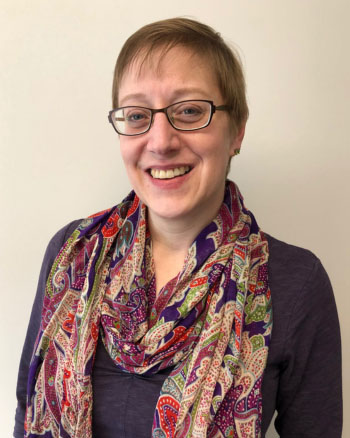
University of Alaska Southeast
Dr. Erica Hill is an accomplished anthropological archaeologist and educator specializing in the Arctic. She serves as President’s Arctic Professor and Director of Research at the University of Alaska Southeast, where she mentors early-career researchers, fosters Arctic research initiatives, and increases research capacity and competitiveness. With expertise in zooarchaeology and human-animal relations, she has published extensively, including three edited volumes, and numerous peer-reviewed articles and book chapters.
Dr. Hill previously served as a Program Officer for the National Science Foundation's Arctic Social Sciences Program and the Polar Postdoctoral Research Fellowship Program, managing multimillion-dollar budgets, administering proposals and awards, and promoting greater awareness of federal research funding opportunities. She has held leadership roles in international collaborations, including as a U.S. representative to an Arctic Council Expert Group. A dedicated academic, Dr. Hill is currently an editor for the journal Animal History and past editor of the Alaska Journal of Anthropology. She earned her Ph.D. with distinction in Anthropology from the University of New Mexico and holds a B.A. in Interdisciplinary Studies from the University of Florida.
Dr. Hill previously served as a Program Officer for the National Science Foundation's Arctic Social Sciences Program and the Polar Postdoctoral Research Fellowship Program, managing multimillion-dollar budgets, administering proposals and awards, and promoting greater awareness of federal research funding opportunities. She has held leadership roles in international collaborations, including as a U.S. representative to an Arctic Council Expert Group. A dedicated academic, Dr. Hill is currently an editor for the journal Animal History and past editor of the Alaska Journal of Anthropology. She earned her Ph.D. with distinction in Anthropology from the University of New Mexico and holds a B.A. in Interdisciplinary Studies from the University of Florida.
Johanna Ikävalko
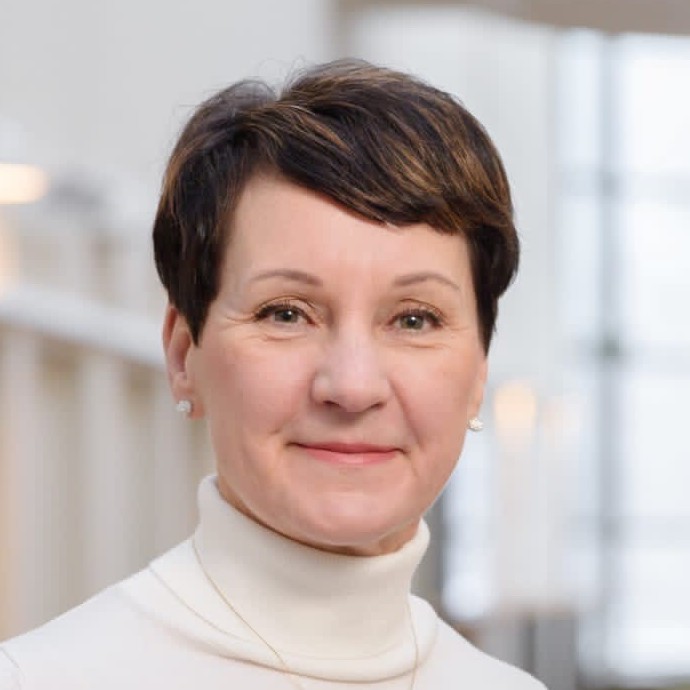
Arctic Centre, Univ. of Lapland
Dr. Johanna Ikävalko received her dissertation at the University of Helsinki, Finland in hydrobiology/sea ice biology. She has lived and done research abroad, e.g. in Germany (Institute for Polar Ecology), Australia (Australian Antarctic Division) and US (University of Santa Cruz, California). Polar field campaigns took her sailing twice to the Antarctic, the North Pole, and several voyages in the frozen Baltic Sea. After her career in science, she has moved to implementation science-based knowledge. In 2009-2013 she was Head of Environment at the Finnish Farmers' and Forest Owners' Association, after which she was the Head of Marine Research Unit, Finnish Meteorological Institute. Johanna has also served as a ministerial adviser at the Ministry of Transport and Communications. During Finland's presidency at the Arctic Council in 2017-2019 she led the priority "Meteorological Cooperation", after which she worked as an expert for the Arctic Council working group Arctic Monitoring and Assessment Programme Secretariat. Dr. Ikävalko has been directing the Arctic Centre of the University of Lapland since 2021.
Chelsea Koch
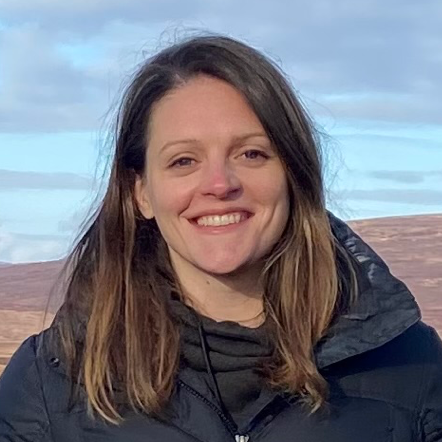
American University
Washington, District of Columbia
Chelsea Koch is an Assistant Professor of Environmental Science at American University. She is a marine ecogeochemist focusing on the use of biological and chemical tracers to explore changing marine ecosystems in the Arctic. Her current research investigates how declining sea ice is changing food webs and the impacts of marine plastic pollution, both with an emphasis on subsistence resources. Accordingly, co-produced knowledge with Indigenous communities is a core guiding principle. She is currently participating as a co-production team member with the Study of Environmental Arctic Change. Chelsea has been an engaged member of the early career community as a co-founder of the Early Career Forum with the Interagency Arctic Research Policy Committee and a board member for the US Association of Polar Early Career Scientists. She was a Knauss Marine Science and Policy Fellow with NOAA in 2014. She also holds experience in the international sector, serving as the Science Officer and Arctic focal point for the UN Decade of Ocean Science for Sustainable Development. Chelsea holds a MS from the University of South Carolina and PhD from UMCES in Marine Science.
Sara Morris

NOAA/OAR/GML
Sara Morris is a seasoned Arctic physical scientist specializing in atmospheric and surface energy processes. She currently serves as the Atmospheric Measurements Network Team Lead at NOAA's Global Monitoring Laboratory, where she oversees operational activities across global networks and coordinates Arctic research initiatives. With a strong background in Arctic data management, instrument coordination, and field campaign leadership, she has contributed to major projects, including the MOSAiC Expedition and the SPLASH field campaign.
Sara holds an M.A. in Physical Geography with an Arctic emphasis from the University of Colorado Boulder, where she also completed her B.A.S. in Environmental Science with a Climate emphasis. Her expertise includes ground heat flux analysis, software development for data dissemination, and advancing research through initiatives such as the Virtual Arctic Research Laboratory.
Recognized with multiple NOAA awards, including the Bronze Medal for contributions to Arctic research, Sara is also deeply engaged in mentorship, science communication, and international collaborations. She actively participates in committees such as the US Arctic Observing Network Expert Committee and previously served as Secretary for the International Arctic Science Committee’s Atmosphere Working Group.
Sara holds an M.A. in Physical Geography with an Arctic emphasis from the University of Colorado Boulder, where she also completed her B.A.S. in Environmental Science with a Climate emphasis. Her expertise includes ground heat flux analysis, software development for data dissemination, and advancing research through initiatives such as the Virtual Arctic Research Laboratory.
Recognized with multiple NOAA awards, including the Bronze Medal for contributions to Arctic research, Sara is also deeply engaged in mentorship, science communication, and international collaborations. She actively participates in committees such as the US Arctic Observing Network Expert Committee and previously served as Secretary for the International Arctic Science Committee’s Atmosphere Working Group.
Kristin Schild
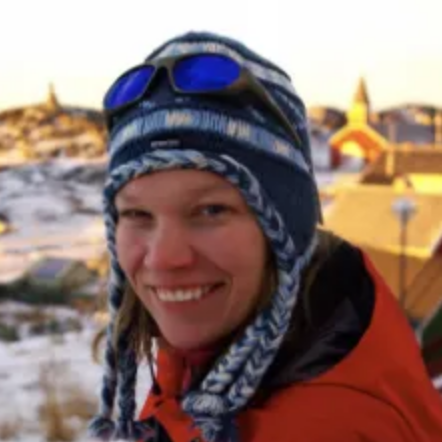
University of Maine
Dr. Kristin M. Schild is an Assistant Professor at the University of Maine specializing in glaciology, ice-ocean interactions, iceberg dynamics, and Arctic climate processes. With a Ph.D. in Earth Sciences from Dartmouth College and a postdoctoral fellowship in the Oceans & Ice Lab at the University of Oregon, her research focuses on understanding glacier dynamics, iceberg melt rates, and the impacts of climate change on polar systems.
Dr. Schild has authored numerous peer-reviewed publications in leading journals, including studies on glacier calving mechanisms, iceberg ablation, and sediment transport in polar environments. She serves on the organizing committee for the International Glaciological Society's Northeast Glaciology Meeting and is a leadership council member for the New England Arctic Network (now 42 North). Additionally, she has chaired sessions at the American Geophysical Union Fall Meetings and acts as a reviewer for multiple prominent scientific journals.
Her work is supported by her expertise in remote sensing, field data collection, and interdisciplinary collaborations. Dr. Schild is also a funding referee for NASA and the National Science Foundation, contributing to advancing research in cryospheric sciences.
Dr. Schild has authored numerous peer-reviewed publications in leading journals, including studies on glacier calving mechanisms, iceberg ablation, and sediment transport in polar environments. She serves on the organizing committee for the International Glaciological Society's Northeast Glaciology Meeting and is a leadership council member for the New England Arctic Network (now 42 North). Additionally, she has chaired sessions at the American Geophysical Union Fall Meetings and acts as a reviewer for multiple prominent scientific journals.
Her work is supported by her expertise in remote sensing, field data collection, and interdisciplinary collaborations. Dr. Schild is also a funding referee for NASA and the National Science Foundation, contributing to advancing research in cryospheric sciences.
Lisa Sheffield Guy
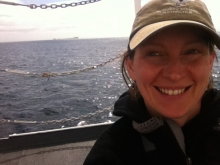
Alaska Ocean Observing System
Pescadero, California
Lisa Sheffield Guy (she/her) is the Regional Ocean Partnership Program Manager at AOOS. Prior to joining AOOS, Lisa was a Project Manager at the Arctic Research Consortium of the US for nearly 10 years, managing programs such as the Sea Ice for Walrus Outlook and Arctic Indigenous Scholars. She was also a Program Coordinator for NOAA’s Ecosystems and Fisheries Oceanography Coordinated Investigations (EcoFOCI) and Synthesis of Arctic Research Programs; and led seabird monitoring on St. Lawrence Island, AK for the USFWS.
Lisa earned BS and MS degrees in Wildlife Science at Oregon State University where she studied seabirds as indicators of climate change on St. Lawrence Island, AK. Her professional interests include the impact of changing climate on ecosystems and communities, equitable inclusion of Indigenous Knowledge in science, science communication, and marine ecology.
Lisa earned BS and MS degrees in Wildlife Science at Oregon State University where she studied seabirds as indicators of climate change on St. Lawrence Island, AK. Her professional interests include the impact of changing climate on ecosystems and communities, equitable inclusion of Indigenous Knowledge in science, science communication, and marine ecology.
Helen Wiggins
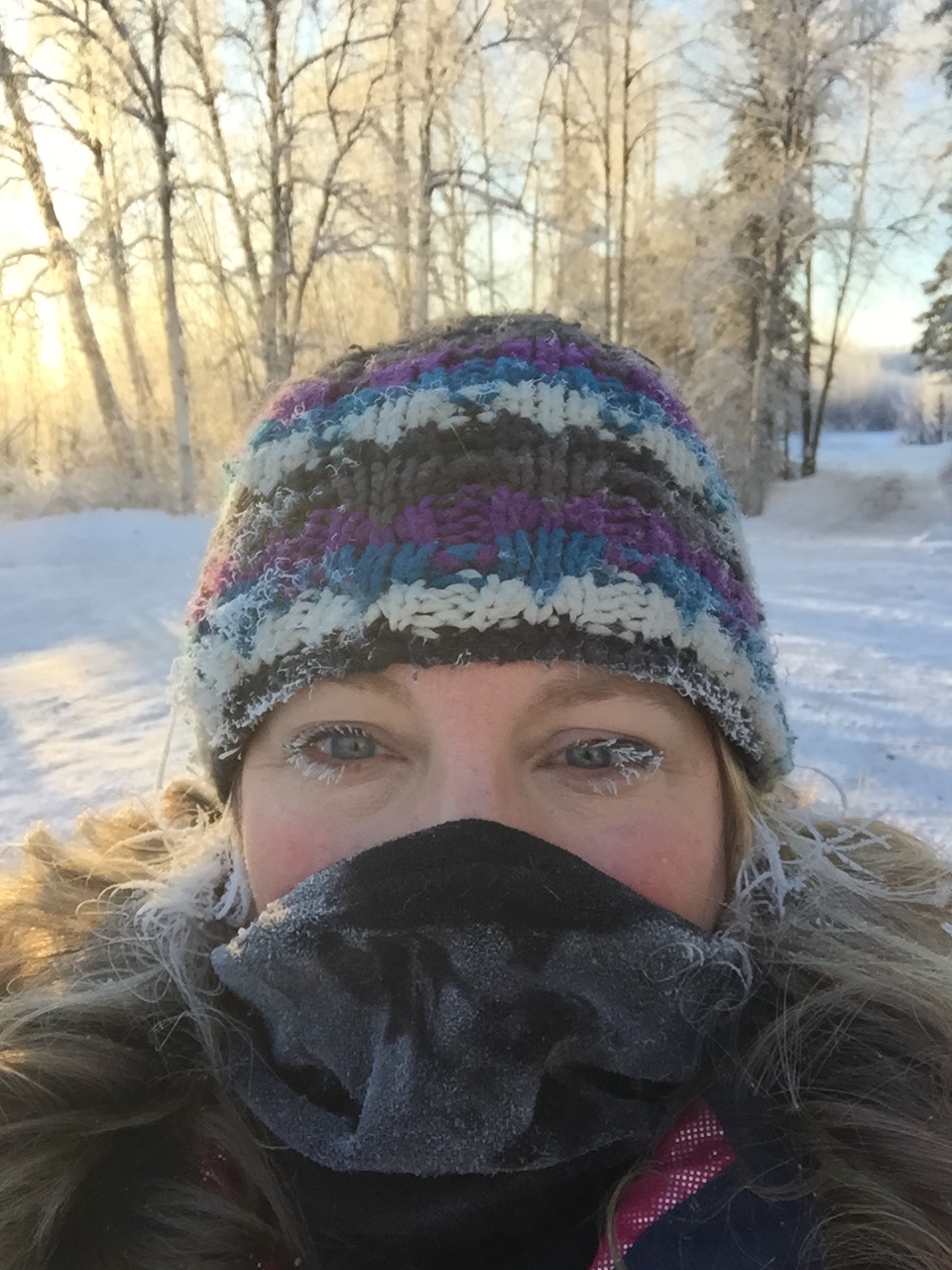
Alaska Association of Conservation Districts
Wasilla, Alaska
Helen Wiggins is an experienced nonprofit leader and scientific community facilitator currently working with the Alaska Association of Conservation Districts, where she supports statewide efforts to promote sustainable land use, conservation, and community-based natural resource management.
Helen previously served as Executive Director of the Arctic Research Consortium of the U.S. (ARCUS) from 2020 to 2024, following her long tenure with the organization beginning in 2003 as a project manager. Throughout her time at ARCUS, she championed cross-disciplinary collaboration and worked to connect Arctic researchers, Indigenous knowledge holders, educators, and policymakers in pursuit of shared understanding and action.
Trained in forest ecology, biogeography, and science writing, Helen brings a systems-thinking approach to her work and is passionate about creating inclusive, authentic spaces where people can learn from one another and work toward common goals.
Born in Alaska, raised in Maryland, and shaped by years living in the U.S. South, Helen now resides outside Wasilla, Alaska, where she lives in a fixer-upper log cabin on a lake with her husband Dan, several dogs, and a flock of chickens.
Helen previously served as Executive Director of the Arctic Research Consortium of the U.S. (ARCUS) from 2020 to 2024, following her long tenure with the organization beginning in 2003 as a project manager. Throughout her time at ARCUS, she championed cross-disciplinary collaboration and worked to connect Arctic researchers, Indigenous knowledge holders, educators, and policymakers in pursuit of shared understanding and action.
Trained in forest ecology, biogeography, and science writing, Helen brings a systems-thinking approach to her work and is passionate about creating inclusive, authentic spaces where people can learn from one another and work toward common goals.
Born in Alaska, raised in Maryland, and shaped by years living in the U.S. South, Helen now resides outside Wasilla, Alaska, where she lives in a fixer-upper log cabin on a lake with her husband Dan, several dogs, and a flock of chickens.
Alexis Will
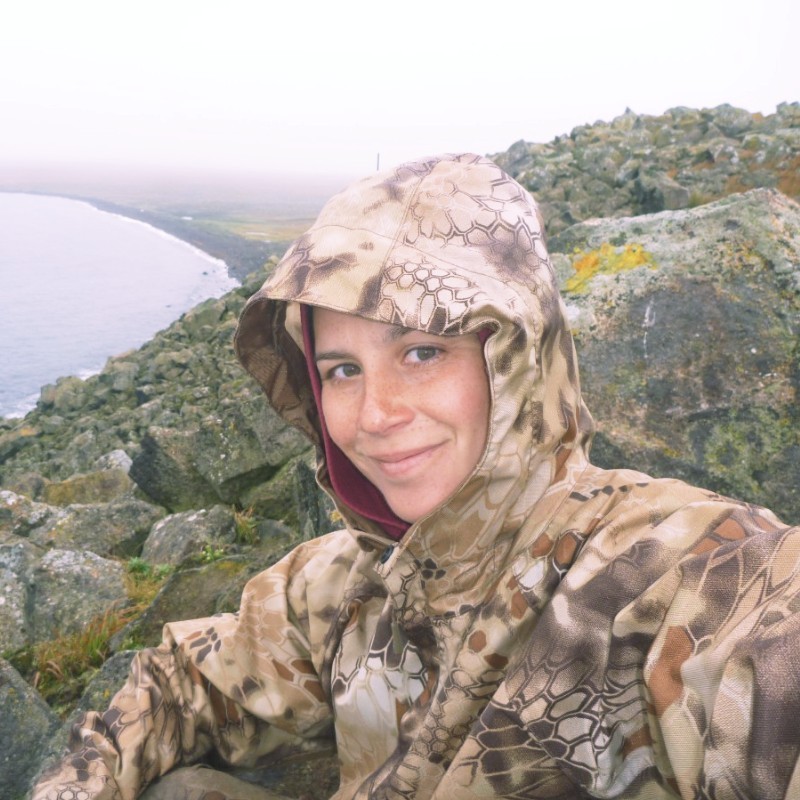
World Wildlife Fund US Arctic Program
Fairbanks, Alaska
Alexis is a Marine Biologist for the World Wildlife Fund US Arctic Program. She works on area-based conservation, research, outreach, and shipping projects that contribute to maintaining a healthy Arctic ecosystem for the people and wildlife that live there. Alexis participates in the ArcNet working group. She also supports the Arctic Program’s work on migratory corridors, underwater noise, and the ecological consequences of climate change. Her background is in seabird ecology and physiology. Prior to joining WWF, Alexis studied how seabird migration, breeding success, diet, and physiology change in response to changes in sea ice and climate regimes over short (5 year) and long (100 year) time scales. Outside of work, she loves backpacking, camping, and skiing (of all kinds).
